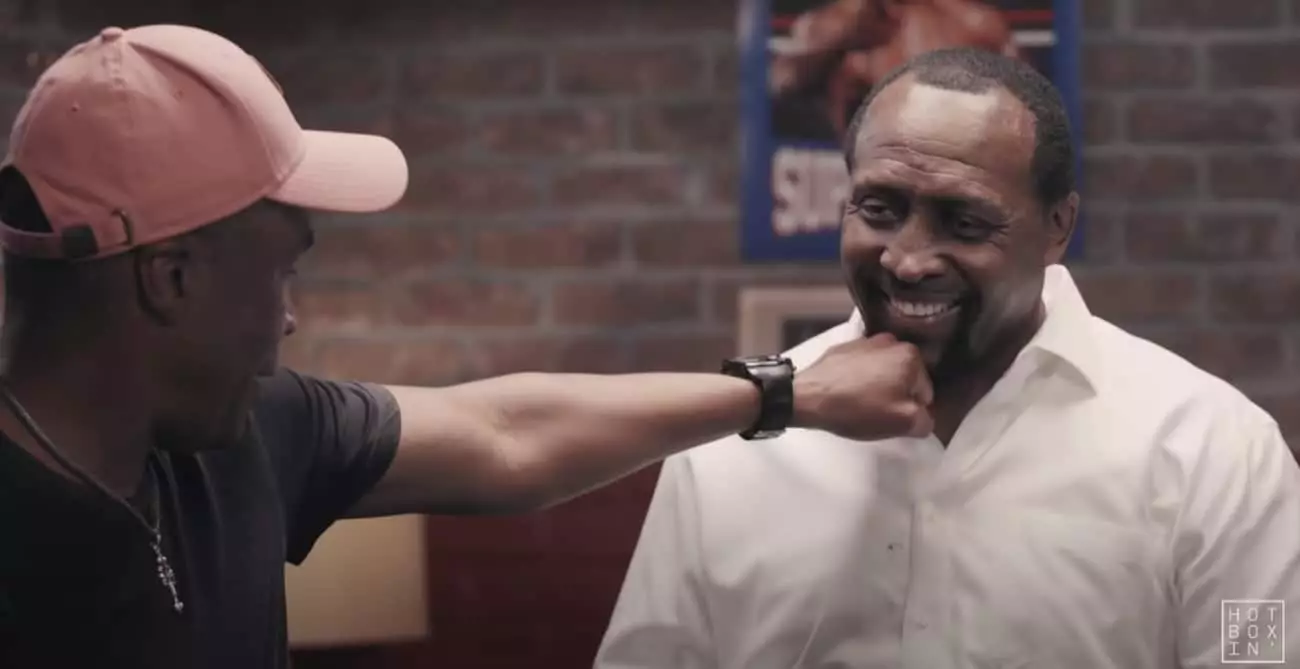In the annals of boxing history, there are few matches that resonate with the same vibrancy and significance as the legendary bout between Sugar Ray Leonard and Thomas “Hitman” Hearns. Occurring on September 16, 1981, at Caesars Palace in Las Vegas, this fight not only solidified the legacies of both fighters but also set a precedent for what sportsmanship and competitive spirit should embody. As we reflect on this extraordinary match that transpired over four decades ago, the elements that defined it underscore the splendor of boxing at its pinnacle.
Before the two champions met in the ring, the buildup to the Leonard-Hearns bout was nothing short of electric. With both fighters at the peak of their physical and professional prowess, anticipation reached a fever pitch. Leonard, with his dazzling hand speed and tactical acumen, collided headlong with Hearns, who possessed an arsenal of power and reach unlike any other at welterweight. The narrative was embellished by contrasting styles: Leonard’s agility and flair versus Hearns’ methodical approach. This match had everything—the backstory, the stakes, and the promise of a historic showdown.
The fight marked an era when boxers weren’t just champions but icons who bravely defended their titles in direct clashes. The resolve and commitment of Leonard and Hearns to face each other rather than sidestep confrontation mirrored an essential truth about elite athletes; they aspire to confront their rivals under the brightest lights, willing to gamble everything for the chance to claim supremacy. In choosing to battle rather than evade, they forged a rivalry that not only captivated their respective fan bases but elevated the sport itself.
As the bell rang to signal the beginning of the match, it was evident that both fighters were intent on making a statement. The early rounds were dominated by Hearns, who utilized his formidable jab to establish control. His reach allowed him to keep Leonard at bay, building an early lead. For five rounds, it seemed that Hearns’ strategy and physical gifts were playing out perfectly, reminiscent of a chess match where one player methodically outmaneuvers the other.
However, as is often the case in great boxing matches, the narrative began to shift dramatically in the sixth round. Leonard, known for his adaptability and fierce competitive spirit, landed a powerful counter left that sent shockwaves through the audience and reverberated in the hearts of Hearns’ supporters. The tide turned instantly, and in that moment, Leonard transformed from the pursuer to the aggressor, showcasing the heart and resilience that would characterize his illustrious career.
The penultimate rounds revealed a captivating contrast in tactics. Leonard’s relentless pursuit in the seventh round had Hearns on the defensive, revealing a new dynamic in their encounter—the hunter had become the hunted. Leonard, with his experience in high-stakes fights, began to capitalize on the openings presented by a cautious Hearns.
As the fight progressed into the later stages, the drama escalated. By round 13, when Leonard had Hearns on the ropes—figuratively and literally—the urgency and fervor of the bout reached a crescendo. This round is often hailed as one of the finest showcases of boxing prowess, with Leonard unleashing a flurry of punches that left Hearns reeling. Leonard’s ability to seize control in critical moments demonstrated not just his physical prowess but his mental resilience.
In the final round, it became clear that Leonard’s training and experience were invaluable. The decision by referee Davy Pearl to stop the fight, with Hearns still holding a lead on the scorecards, was a point of contentious debate; however, there was no denying that the tide of the match had shifted. Leonard’s spectacular performance in those closing rounds culminated in his emergence as a true boxing legend, solidifying his claim to the title of pound-for-pound king.
The aftermath of the Leonard-Hearns fight transcended mere statistics; it established a benchmark for greatness in boxing that would endure for generations. Both fighters showcased a spectacular display of skill, determination, and sportsmanship. Their refusal to back down in pursuit of glory not only enriched their legacies but also inspired future generations of fighters. Eight years later, when they clashed again, the respect they had for one another was palpable, further solidifying their places in boxing lore.
In an era marked by matches that often prioritize financial gain over rivalry, Leonard and Hearns reminded us all of the essential spirit of sport—the willingness to face off against the very best, embodying a true warrior ethos. Their clash remains a defining moment in boxing history, a thrilling narrative of two champions determined to prove their greatness in the ring. As we remember that fateful night in September, we celebrate not just the fight, but the enduring legacy of these two titans of the sport.

